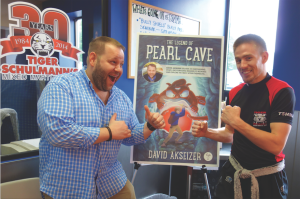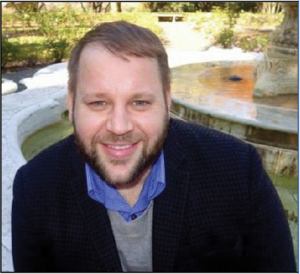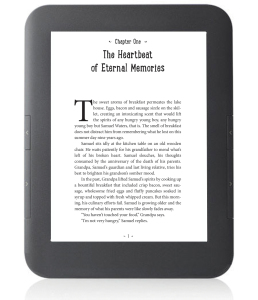By Obie Yadgar

Fountain Pen
“My two fingers on a typewriter have never connected with my brain,” said author Graham Greene. “My hand on a pen does. A fountain pen, of course.”
That is precisely my sentiment about the fountain pen. It has been since the moment I called myself a writer. Not that I dislike the typewriter, and now the laptop computer, but the fountain pen brings another dimension to the way I think about the written word, especially the novel.
Writing a novel is one of the most intimate acts one can perform, and writing with the fountain pen adds the candlelight and the soft music. When writing at my desk, local library or coffee shop, I slump over the writing pad, fountain pen in hand and elbows resting on the desk or table. If I could get any closer to the paper, I would, for I think it is that sense of oneness with the fountain pen, the paper and the written word that pulls me into this magnificent world of imagination.
The intoxicating fragrance of the ink, black for writing and red for editing, frames my humble literary ritual.
The laptop computer gives me speed and precision in editing. Yet I feel a physical, and sometimes mental, distance from the keyboard. Who ever heard of slumping over the keyboard? When working on short pieces and especially under a time constraint, I do the entire work on the computer. Longer pieces, and especially the novel, need that physical closeness for the first draft — and if the first draft is done, the rest is easy.
The first draft of my novel Will’s Music, due to be published soon by Figlo Press, took me a year to write, and it was written exclusively with the fountain pen. When the writing tablet was cumbersome to transport, my little pocket notebook served the purpose — I don’t recall ever being without a pocket notebook and fountain pen. Some chapters of Will’s Music were actually written in my little notebook.
That happened when visiting my daughter in Grand Junction, Colorado, where she worked as a hospital dietitian. I spent the shopping mall expeditions with the family slumped over a table at the coffee kiosk writing in the little notebook. And on several occasions in the Denver shopping malls, I took leave from the family and faded away with my little notebook and fountain pen at the coffee kiosk or in a comfortable seat. For such occasions, I always carried two fountain pens filled with ink and ready to go — I don’t particularly care for cartridge ink. Later, when the manuscript was typed on my laptop, I did all the editing with my fountain pen.
I realize writing with the fountain pen is relatively slow. That is slow in today’s society when computers provide astonishing speed. But I’m sure the great masters of the past did just fine with the feather quill and inkwell regardless of how long the writing took. For instance, the composer Felix Mendelssohn wrote letters to many people. On one occasion he wrote 27 long and detailed letters in one day. Tolstoy’s wife Sophia Tolstoya copied War and Peace seven times in longhand before the novel was published.
I figure if writing in longhand was all right for the great masters, writing in longhand with the fountain pen is all right for a pilgrim like me. Yes, writing with my fountain pen is slow and the pages sometimes cluttered with strikeouts, but I, too, feel somehow that the fountain pen connects better to my brain than does the laptop. And just as well, too, for I have always considered myself slow and methodical in my thinking and creative process.
Occasionally, when ideas pour out of me and I find myself writing as fast as my fountain pen allows, my script becomes illegible, but one way or the other I figure out what I have written. So all is not lost. In recent years, however, I try to slow down during such bursts of energy knowing that much of what I have written will have to be chopped off.
The fountain pen and I go back a long time. Living in Tehran until my mid-teens, if memory serves, we used both pencil and fountain pen in school. At one time — I believe it must have been in the first or the second grade — a couple sales reps for the Pelikan, the renowned German fountain pen, lived on our block.
What I particularly remember about these kind gentlemen is the fabulous German cookies they made for neighborhood kids. When they baked, the heavenly perfume of those cookies permeated the soul. Not only that, but the gentlemen also handed out inkblots with the Pelikan logo that came in handy in school. That is one of sweetest memories of my youth.
Again if memory serves, they also gave me my first Pelikan. Or perhaps my mother bought one for me from the store, I don’t recall, because it was so long ago. Either way, I am almost certain my first fountain pen was a Pelikan. That is why the Pelikan has always remained my favorite of all the fountains pens I have used through the years.
That Pelikan fountain pen is long gone, but I have two others that my wife bought for me some years ago. Today, my small collection of fountain pens includes, in addition to the Pelikans, Mont Blanc, two Parkers, Waterman and Schaefer. And all are well used in rotation. As I prepare to start my new novel, my fountain pens are filled with black ink and ready to go.
A writer can write with any writing instrument, be it a computer, ballpoint, rollerball or fountain pen. I imagine somewhere around the world there is that distinct writer who would not think of writing with anything else but a feather quill and inkwell. And all the more power to him or her. What is important is to write — every day and everywhere. That is what I do. After all, I am happy as long I have my fountain pen in hand and a pad of paper in front of me.








